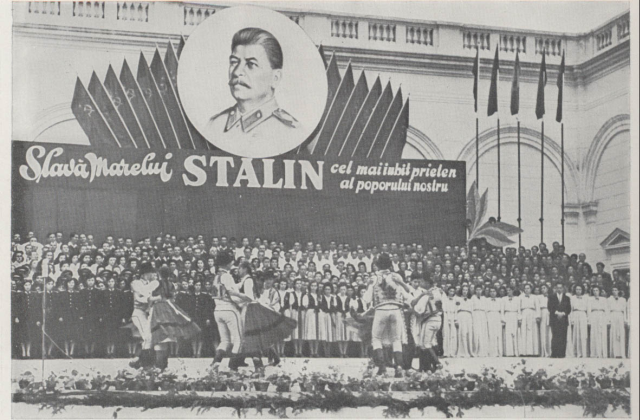The Independent Romania Anti-Communist Group
Anti-communist resistance in the early years of the communist regime

Steliu Lambru, 19.01.2015, 14:33
After the aggressive installation of communism in Romania, the democratic parties organized resistance movements. One of these movements was the “Independent Romania” group, created by the National Peasant Party. In the summer of 1947, the leaders of the party were arrested by the communist government following the Tamadau incident. The Peasant Party leaders were offered an airplane to take them abroad, but in fact this was just a trap laid by the communists, who needed a pretext to arrest the democratic opposition.
However, things did not stay like that. The opposition realized things were changing, and that the situation was turning into a military confrontation, after in 1944 – 1947 the communists supported by the occupying Soviet army took over power. The Peasant Party youth started to set up resistance groups, such as the Independent Romania group, created in 1947.
Nistor Badiceanu was a senator in the Romanian Parliament on behalf of the Christian Democratic National Peasant Party between 1992 and 1996. As a young man, he was a member of the Independent Romania resistance group. He spoke about it for Radio Romania’s Center for Oral History in 1999:
Nistor Badiceanu: “We, the Peasant Party youth, sought to switch to a subversive form of organization. This is how a lot of organizations were formed, like Vlad the Impaler, The Eagles, Group 4, Independent Romania. We believed that we needed to prepare, to network, to arm ourselves, and at the right time to start an armed rebellion, as we were hoping for an intervention and imminent war. We had the enthusiasm of youth, and not just youth, because we were keeping in touch with a whole range of former party members, chairmen and determined field activists, especially in Marghita, in the northern part of Bihor County, where I am from, and where I sought to rebuild the local branch. With all our enthusiasm back then, we realized that there was a danger, considering who we were dealing with, and their methods. They weren’t pulling any punches.”
Nistor Badiceanu gave us details on the group’s structure, who the members were, and their guiding principles.
Nistor Badiceanu: “The core group was made up of 32 to 35 members. In the end, to be honest, I don’t even know how many of us there were, we were hundreds. That was the rumor, not everyone knew everyone, for safety reasons. Of three, one recruited three others, and so on. If an uprising had started, it would have been very easy to act in force. The members of the group were mostly locals, in the northern part of the county and the center, Oradea, and the area around Marghita where I had closer acquaintances whom I trusted more. Because some of us were linked together by a lifetime, starting as students, then meeting at various parties and party events, I knew their orientation and beliefs, and the strength of character of some of them. You couldn’t bring in just anyone.”
We asked Mr. Badiceanu about his role in the Independent Romania group. He told us he was an initiator and mostly in charge with raising awareness of the danger that loomed over Romania.
Nistor Badiceanu: “I was a ringleader, a troublemaker, basically an organizer. It was no longer the case to have a democratic leadership, with conferences and congresses, with a democratically elected leader. We were preparing for fighting against state power, what the communists had dubbed ‘the crime of conspiring against social order’, which was included in the Criminal Code, with specific penalties. We also had weapons, because during the war you were allowed to have those. At some point we had a horse cart full of grenades, then handguns and submachine guns, that was not a problem. With the Germans having retreated in disarray, and the frontline going through our region, when someone died, their weapon right next to them, the people who found them kept them hidden. We used to go around villages, gathering the people we trusted and the people they had recruited, and we told them what they had to do, the next step, where to be careful, and where to go out and talk to people. The net was closing in, quotas had been introduced, they were taking away wheat from people, state policy was more and more repressive, and things were getting ripe for us.”
Badiceanu wanted to put together a guerrilla to hide in the mountains and put up armed resistance. Joining the Peasant Party members were members of the Romanian armed forces, former Iron Guard members and peasants who had had their land taken away. This was the anti-communist resistance. After 8 months, the Independent Romania group was uncovered, and its core members arrested because of a recruit who could not keep the secret. The group, however, had made its point.





























